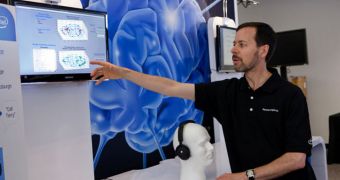Officials at the X Prize Foundation, the same that is being joined by Google in supporting the Lunar X Prize competition, announce that they are seriously considering partnering up with other groups to create the Brain X Prize.
The main goal of the competition would be to award the science team that manages to develop and demonstrate virtual telepathy capabilities in ill humans, which is to say create a brain-computer interface (BCI).
Other aims include developing therapies that could make paralyzed individuals walk again, or at least regain part of their mobility, and self-reliance.
The proposition was analyzed by the representatives of a venture capital firm, a medical device company, and the X Prize Foundation on October 13, during a symposium held at the Brown University
Neurotechnology is a very promising field of research today, but the current economic downturn is making it very hard for scientists to secure funding to push ahead with development.
“The current economy is focused on conserving resources, not investing in risk-taking,” sums up the issue a founding member and partner of NeuroVentures Capital, Daniel O'Connell.
The senior director of prize development at the X Prize Foundation, Eileen Bartholomew, says that a future Brain X Prize would have very specific demands, such as for example allowing individuals who suffer from paralysis to “pick up a glass of water, or step out of a wheelchai.”
“Prize rewards outcome but also risk-taking. It's not just about winning the prize itself, but also about the process of getting there,” Bartholomew explains, quoted by LiveScience.
A $10 million purse for the development of such neurotechnologies could make it a lot easier for research groups to decide on whether to take the chance to engage in such research or not.
The work could also draw attention to the fact that pharmaceutical companies and government regulators are currently harming this type of research to a great extent.
According to O'Connell, the Food and Drug Administration (FDA) is laden with people who object to taking risks, which means that, even if new therapies were to be produced, they would do little difference for the general population.
Most likely, before an X Prize is created, collaborators at the symposium will agree of approving a series of X Challenges, whose job would be to get some of the largest obstacles out of the way.

 14 DAY TRIAL //
14 DAY TRIAL //